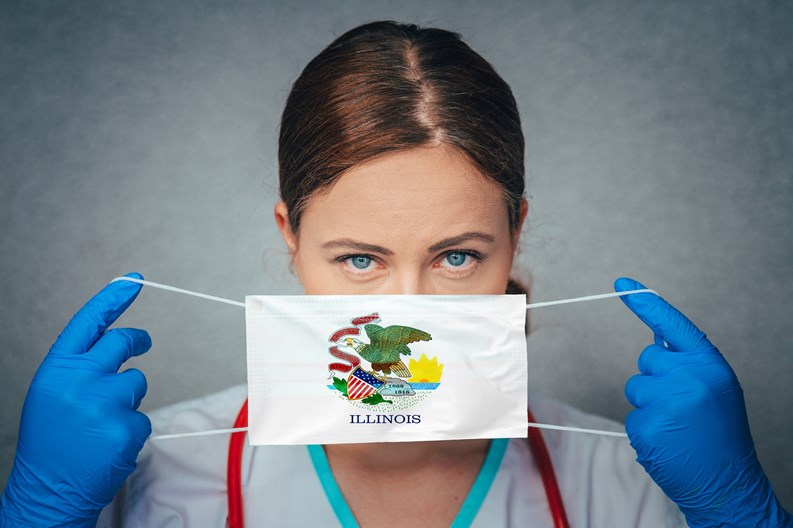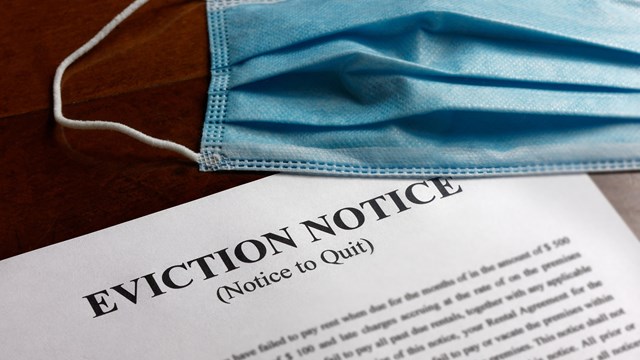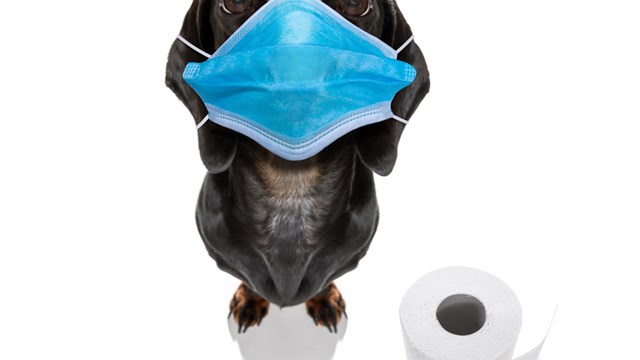According to multiple news outlets, Illinois is seeing its highest numbers of COVID infections, hospitalizations, and deaths since the beginning of the pandemic. Metrics are surpassing even last spring's peaks in most areas of the state. In response, Chicago Mayor Lori Lightfoot issued a stay-at-home advisory for the city on November 12, which was in turn echoed by Cook County officials the following day, who said the city has reached a “critical point” in its second surge of the coronavirus pandemic.
“The gains we have made this past year have been the result of our willingness to work together,” says Lightfoot, referencing the city’s ability to substantially reduce its spring numbers prior to this more recent second wave of infections. “Even in this difficult moment, we will continue to unite as we always have for our city in order to halt the rise we’re seeing, shake out of the fatigue we’ve been experiencing, and make the crucial difference in what our future is going to look like.”
State data reveal that as of November 16, when the stay-home advisory took effect for the city and suburban Cook County, 5,581 Illinois residents were hospitalized with coronavirus-like illnesses; 1,144 of those patients were in intensive care units; 514 were on ventilators. All three statistics are the highest metrics the state has seen in their respective categories since the first peak in COVID-19 cases earlier this year, reports NBC 5 Chicago.
“We’re in the midst of an absolutely abysmal second wave of this pandemic,” says Dr. Robert Citronberg, executive medical director of infectious disease and prevention for Advocate Aurora Health, a hospital system with care centers in Illinois and Wisconsin. “We’re seeing numbers that were not even imaginable just a few weeks ago.”
Considering these factors, Chicagoans are strongly advised for at least the next 30 days to:
Only leave home to go to work or school, or for essential needs such as seeking medical care, going to the grocery store or pharmacy, picking up take-out food, or receiving deliveries. If you do leave home, practice social distancing by staying at least 6 feet away from others and wearing a face covering at all times.
Do not have gatherings in your home that include anybody outside of your household (except for essential staff such as home health care workers or educators), even with trusted family or friends.
Avoid all non-essential and out-of-state travel; if travel is essential, quarantining or testing negative prior to and post-travel is required, depending on which state a traveler is originating from.
Comply with city and state orders, including wearing face coverings, limiting gatherings, and closure of non-essential businesses at 11 p.m.
If you go outside for exercise or fresh air, practice social distancing and avoid touching surfaces frequently touched by others.
Use remote modes of communication like phone or video chat instead of visiting friends or family, especially on holidays such as Thanksgiving.
State Response
This week, Illinois Governor J.B. Pritzker also announced a set of 'Tier 3 mitigation' restrictions on certain types of businesses and facilities that will take effect Friday across the state. While these strategies stop short of a mandatory statewide stay-at-home order, Pritzker has not ruled out the possibility of issuing such an order in the future.
Citing concerns about the rising COVID numbers at the state and national levels, as well as the propensity for holiday surges, Pritzker is poised to institute such an order if the metrics warrant. “The numbers don’t lie,” says the governor. “If things don’t take a turn in the coming days, we will quickly reach the point when some form of a mandatory stay-at-home order is all that will be left. With every fiber of my being, I do not want us to get there, but right now that seems to be where we are heading.”
Last week, Pritzker pondered the same initiatives. “I’m very concerned as we approach Thanksgiving,” he said in a coronavirus briefing. “I’m very concerned as these numbers rise. And as a result, as I’ve told you for days...we are looking at really all the possibilities—the possibility that we would have to go back a phase, the possibility that we would have to ultimately have a stay-at-home order. Those are not things that I prefer to do. But these numbers are not sustainable.”
Having a Home to Stay Home In
Also announced on November 13 was a 30-day extension of the state's existing eviction moratorium, giving renters who earned less than $99,000 this calendar year—or $198,000 for joint filers—a continued reprieve from eviction if they can certify substantial loss of income or increase in expenses due to COVID, according to the office of the governor.
“The need is enormous for landlords, renters, and home mortgage holders alike,” Pritzker said in his coronavirus briefing. “Both the rental and mortgage assistance programs were oversubscribed two-to-one, and that’s not even counting people in need who might never have applied at all.”
The new orders ensure that smaller landlords and property owners still receive payments from tenants who qualify for eviction ban assistance. According to NBC News’s reporting, the state of Illinois has awarded $182 million in assistance to 36,400 renters suffering from financial hardship since the origination of the eviction ban in March.







Leave a Comment